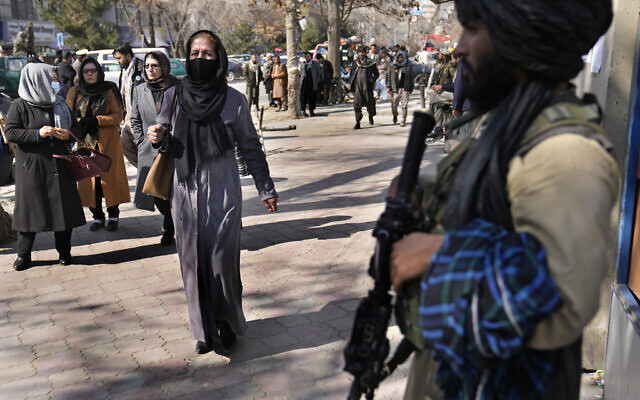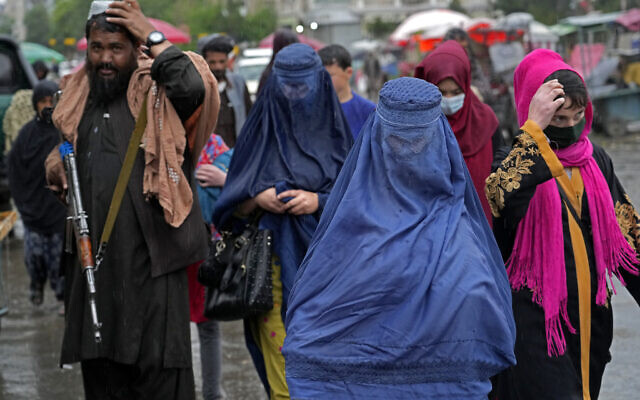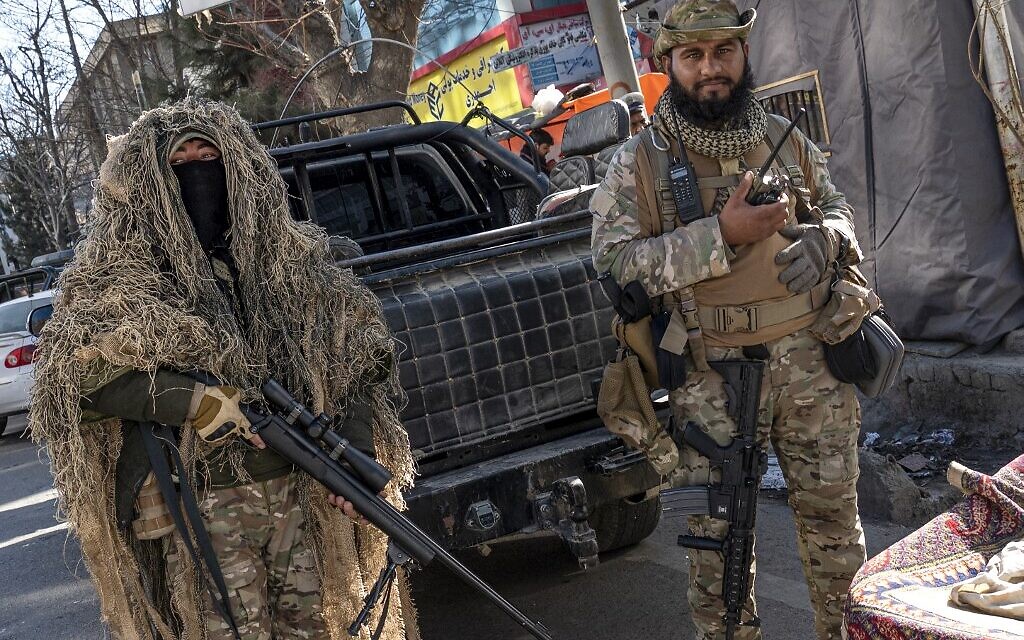Kabul, Afghanistan (AFP) – Afghan Taliban rulers order all female employees of national and international non-governmental organizations (NGOs) to stop working after ‘serious complaints’ over dress code did, the economy ministry said on Saturday.
The order, which drew swift international condemnation, threatened to suspend the operating licenses of non-governmental organizations that failed to implement the directive.
The latest restrictions come less than a week after Taliban authorities banned women from attending colleges, sparking global outrage and protests in some Afghan cities.
When the Taliban returned to power last August, they promised a more flexible form of control, but instead imposed tighter restrictions on women, effectively keeping them out of public view.
“Serious complaints have been received regarding non-compliance with the Islamic hijab and other rules and regulations related to women’s work in national and international organizations,” said a notice sent to all NGOs. A copy was released by AFP and an economy ministry spokesman.
“The economy ministry … has instructed all organizations to suspend women from working until further notice,” the circular said, warning that if groups ignored the order, their licenses would be “revoked.” did.
A female Afghan university student is stopped by Taliban security forces next to her university in Kabul, December 21, 2022. (Wakil KOHSAR / AFP)
It is not yet known whether the directive affected foreign female staff of NGOs.
Two international non-governmental organizations have confirmed that they have been notified.
“From Sunday, we will suspend all activities,” a senior international NGO official working in humanitarian action told AFP on condition of anonymity.
“A meeting of senior officials from all NGOs will be held soon to decide how to handle this matter.”
Dozens of national and international NGOs continue to operate in some sectors of Afghanistan’s remote areas, and many of their employees are women.
A female NGO employee in Afghanistan was distraught after the ban.
“What would a woman working for such an NGO do without a man to feed her family?” she asked AFP not to reveal her name. The only thing that kept me out of it was the salary.”


An Afghan woman walks past Taliban fighters in Kabul, Afghanistan, February 13, 2022. (AP Photo/Hussein Malla)
“Deplorable” Order
Another official, who works for an international NGO involved in food distribution, said the ban was a “huge blow to female staff.”
“We have female staff primarily to address the humanitarian concerns of Afghan women,” the official said. “How do you address their concerns now?”
The UN Secretary-General’s Deputy Special Representative for Afghanistan, Ramiz Arakbarov, said the order was a “clear violation of humanitarian principles”.
Human rights group Amnesty International tweeted that the ban was Afghanistan’s “deplorable attempt to erase women from the political, social and economic space”.
In a statement, the International Rescue Committee said more than 3,000 Afghan female workers were “critical in providing humanitarian assistance” in the country.
The European Union, which is the main funder of aid organizations operating in Afghanistan, does not recognize the Taliban as the country’s official government, but condemned the decision and said it would “impact on our aid on the ground”. said to be evaluated.
“Our primary concern will remain the welfare, rights and freedoms of the Afghan people,” Nabila Massrali, spokesman for the EU’s head of foreign policy Josep Borrell, told AFP. said in


An Afghan woman walks through an old market as guards by Taliban fighters in downtown Kabul, Afghanistan, May 3, 2022. (AP Photo/Ebrahim Noroozi)
Loading restrictions
The order is the latest attack on women’s rights in the country.
On Tuesday, authorities banned all women from attending college, sparking condemnation from the United States, the United Nations, and several Islamic countries.
The seven major democracies said the ban could amount to a “crime against humanity”.
The ban comes less than three months after thousands of women were allowed to take college entrance exams.
In response to the order, about 400 male students on Saturday boycotted exams in the southern city of Kandahar, the Taliban’s de facto center of power.
This is the hope of Afghanistan. Men like these students at Nangarhar Medical College are refusing to take exams in protest that women have been barred from the university. Three university lecturers also reportedly resigned in protest (from Kunduz, Kabul and Technical Universities). pic.twitter.com/s7HEbp2x8R
— Ramita Navai (@ramitanavai) December 21, 2022
The students’ strike was dispersed by Taliban forces firing into the air, a lecturer at Mirwaiz Nika University, where the protest took place, told AFP on condition of anonymity.
The Taliban have already banned teenage girls from attending secondary school, and women have been kicked out of many government jobs, barred from traveling without male relatives, and forced to leave their homes, ideally in burqas. are ordered to cover
They are also prohibited from entering parks and gardens.
The Taliban have also resumed the public flogging of men and women in recent weeks, expanding their implementation of extreme interpretations of Islamic law.




